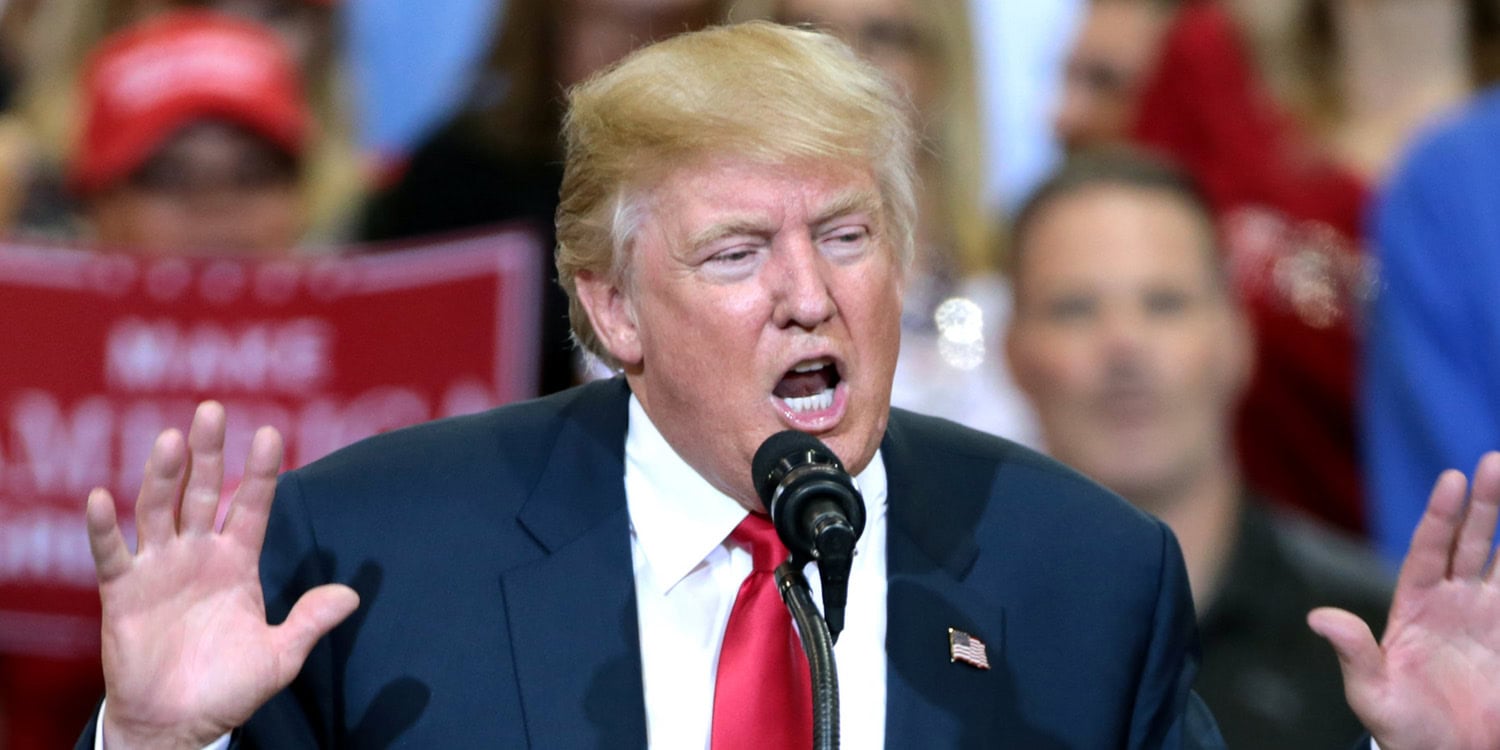Feelings of sadness, anger, and despair might hold the key to understanding the rise of populist leaders like Donald Trump in recent years. A large-scale study published in American Psychologist suggests that negative emotions among voters are not only linked to populist attitudes but are also significant predictors of populist voting behavior in major elections. This research, which spans over 150 countries and includes the analysis of more than 2 billion tweets, emphasizes the overlooked role of emotions like sadness and depression in driving the demand for populism.
Populism is characterized by three main tenets: anti-elitism, a Manichean worldview (dividing society into good, ordinary people versus evil elites), and people-centrism, which holds that politics should directly reflect the will of the people. Populism can manifest across the political spectrum, from right-wing nationalism to left-wing socialism, depending on the context and the issues at hand.
The study was motivated by the growing prominence of populist leaders and movements across the globe, from the United Kingdom’s Brexit referendum to the election of Trump in the United States. Despite numerous studies exploring economic and cultural reasons for the rise of populism, the psychological aspects, particularly the role of emotions, have been less thoroughly examined.
Given the increasing levels of negative emotions worldwide, as reported in various large-scale surveys, the researchers aimed to investigate whether these emotions could be a significant factor in driving the popularity of populist ideologies and candidates.
The research was carried out in several phases across multiple studies, employing both survey data and advanced text analysis techniques.
In the first phase (Studies 1a and 1b), the researchers used data from large international surveys, including the Gallup World Poll, which surveyed over 1.3 million respondents from more than 150 countries. These surveys asked participants about their recent emotional experiences — specifically whether they felt anger, worry, or sadness — and measured their political attitudes toward populism.
The findings from Study 1a revealed a strong and consistent relationship between negative emotions and populist attitudes. Individuals who reported experiencing higher levels of anger, worry, or sadness were significantly more likely to endorse populist beliefs. This pattern held across a diverse range of countries, suggesting that negative emotions may be a global driver of populist attitudes, irrespective of cultural or political context.
Study 1b corroborated and extended the findings of Study 1a. Negative emotions were again found to be positively correlated with populist attitudes. However, the study also revealed some nuances. For instance, while anger, worry, and stress were strongly associated with anti-elitism and a Manichean worldview, sadness and anxiety showed weaker associations. Interestingly, people-centrism, a key component of populism, was negatively associated with negative affect, suggesting that not all aspects of populism are driven by negative emotions.
Jochen Menges, an associate professor in organizational behavior at Cambridge Judge Business School and director of the Center for Leadership in the Future of Work at the University of Zurich, and a co-author of the study, said: “Emotions matter for how people vote. Negative emotions such as anger, fear and sadness are a fertile ground for populists. In a year in which half of humanity goes to vote, our research calls for all politicians to alleviate rather than avail themselves of negative emotions.”
In the second phase (Study 2), the researchers examined how changes in negative emotions over time within a country could predict the vote shares of populist parties in general elections across 24 European countries. This analysis used data from the Gallup World Poll, comparing emotions such as anger, worry, and sadness with subsequent election results.
The findings from Study 2 provided strong evidence that increases in national levels of negative emotions were associated with higher vote shares for populist parties. Specifically, the researchers found that a one standard deviation increase in negative affect within a country was associated with a 5.6 percentage point increase in the populist vote share.
This relationship was robust even after controlling for macroeconomic factors, suggesting that negative emotions may play a more direct role in driving populist electoral success than previously understood. Furthermore, the researchers found that while all three negative emotions — anger, worry, and sadness — were linked to increased populist voting, sadness emerged as a particularly strong predictor, challenging the common focus on anger and fear in discussions of populism.
The third phase (Studies 3, 4a, and 4b) involved analyzing over 2 billion tweets from the United Kingdom and the United States to measure expressed emotions at a regional level. This method used natural language processing to assess how often words related to anger, anxiety, and depression appeared in tweets. The researchers then compared these findings with voting patterns in key events such as the Brexit referendum and the U.S. presidential elections in 2016 and 2020.
Andrew Schwartz, an associate professor in computer science and director of HLAB (Human Language Analysis Beings) at Stony Brook University and a co-author of the study, said: “Analyzing digital language has come a long way. It can supplement traditional surveys with measurements of life, as lived online, and recent methods are making such measurement accurate by, for example, producing more representative statistics from biased samples. All of this makes it possible to measure emotion at scales never before possible.”
The results from Study 3 showed a strong correlation between expressed negative emotions and support for Brexit. Areas with higher levels of anger, anxiety, and depression in tweets were significantly more likely to vote for Leave. Notably, anger was the most robust predictor, with a one standard deviation increase in anger levels associated with a 3 percentage point increase in the Leave vote share. These findings suggest that the emotional tone of public discourse, as reflected on social media, can be a powerful predictor of populist voting behavior.
George Ward, a junior research fellow in economics at the University of Oxford, where he is affiliated with Somerville College and the Wellbeing Research Centre, and lead author of the study, said: “It has become political lore that the state of the main economic indicators is what determines elections. But a growing body of evidence shows that how people are feeling matters just as much, if not more.”
“Even if the economy is doing well from an objective standpoint, if voters are regularly experiencing large amounts of negative emotions – like sadness, anger, and fear – then the data suggests that there is fertile ground for populists to make electoral gains.”
The findings from Study 4a revealed that expressed negative emotions were strongly predictive of Trump’s vote share. Counties where tweets contained higher levels of anger, anxiety, and depression were more likely to support Trump. Interestingly, while anger was a strong predictor, anxiety and depression were equally, if not more, strongly associated with Trump voting. This challenges the common narrative that focuses primarily on anger as the driving emotion behind populist support.
Study 4b provided insights into how changes in public sentiment influenced electoral outcomes over time. The findings indicated that counties experiencing a reduction in negative emotions were less likely to support Trump in 2020 compared to 2016. Conversely, counties where negative affect increased were more likely to maintain or increase their support for Trump. This suggests that while populist candidates can capitalize on negative emotions to gain power, sustaining that support may require addressing the underlying causes of those emotions.
Sandra Matz, the David W. Zalaznick Associate Professor of Business at Columbia Business School and a co-author of the study, said: “Populist leaders thrive on tapping into negative emotions to gain power at the ballot box, but their hold on power becomes precarious once in office. Once elected, they need to deliver on their promises of radical change to keep the backing of an emotionally charged electorate.”
“Our research challenges conventional wisdom, revealing that negative emotions among voters not only call for change but also demand accountability from those in power. In today’s turbulent political landscape, understanding these dynamics is vital for any populist incumbent seeking to stay in the voters’ good graces.”
While the study provides evidence of the link between negative emotions and populist support, there are some limitations to consider. For instance, the study is largely correlational, meaning it cannot definitively prove that negative emotions cause increased support for populism. While the researchers took steps to rule out reverse causality (e.g., the possibility that populist campaigns increased negative emotions), the complex interplay between emotions and political behavior requires further investigation.
“Across a range of geographical and political contexts, we establish a clear link between negative affect and support for populism. While each of our settings, samples, and methodologies has both advantages and disadvantages, taken together, the analyses tell a compelling story of a robust empirical link between negative affect and the demand for political populism,” the researchers concluded.
The study, “The Role of Negative Affect in Shaping Populist Support: Converging Field Evidence From Across the Globe,” George Ward, H. Andrew Schwartz, Salvatore Giorgi, Jochen I. Menges, and Sandra C. Matz.




